Microcephaly is a term used to describe an uncommon neurological disorder that is characterized by a substantially smaller head in an infant as compared to the head sizes of other children of same gender and age. Microcephaly is generally caused due to abnormal development of the brain in the womb, or after birth. It is sometimes diagnosed after delivery.
There are many environmental and genetic factors that contribute to the development of microcephaly. Affected children usually experience many developmental problems.
In most cases, microcephaly has no known treatment options. However, early childhood intervention can help improve the development of the child and also enhance his/her quality of life.
Symptoms of microcephaly
- The main symptom of microcephaly is a considerably smaller head size as compared to other children of similar age and gender.
- The head size refers to the circumference of the head, i.e., the distance around the upper area of the head. Doctors use standardized growth charts to compare the measurements of affected children with the measurements of other kids in percentiles.
- It may be noted that some kids tend to have small heads which is considered as normal, and which may measure in the 3rd, 2nd, or even the 1st percentiles. Children affected by microcephaly typically have a head size that is substantially below the average measurements, sometimes even lower than the 1st percentile for a child of a specific age and gender.
- Children with extreme cases of microcephaly also tend to have a forehead with a backward slope.
In a majority of cases, doctors generally tend to detect microcephaly at the time of a baby’s birth, or during one of the well-baby regular checkups. Parents who believe that their child’s head is smaller than usual, or if it is not growing normally, need to consult a doctor for further information.
Some children affected by microcephaly tend to have normal development and intelligence, despite their head size always being considerably smaller for their gender and age. However, as per the severity and cause of the condition, microcephaly can result in the following complications:
- Problems with balance and coordination
- Delays in motor development, speech development, etc.
- Mental retardation
- A short stature or dwarfism
- Hyperactivity
- Facial distortions
- Convulsions or seizures
Causes
- Microcephaly is often caused due to anomalous development of the fetal brain, or during infancy.
- Microcephaly may also have genetic causes.
Some other causes of microcephaly are listed below:
- Craniosynostosis: It is a condition characterized by premature fusion of the sutures or joints occurring between the bony plates that eventually develop into the skull of the infant. This prevents the further normal growth of the affected infant’s brain. Treatment of craniosynostosis usually involves surgical separation of the fused bones. If the brain has not developed any underlying anomalies, then such a surgical procedure generally allows sufficient space for the brain to develop and grow normally.
- Cerebral anoxia or low oxygen supply to the brain of the fetus: Certain types of pregnancy complications or those arising during delivery can impair the supply of oxygen to the fetal brain.
- Chromosomal anomalies: Microcephaly can also be caused due to Down syndrome or other such chromosomal disorders.
- Fetal infections during pregnancy: Infections such as cytomegalovirus, toxoplasmosis, varicella chickenpox, and German measles or rubella can increase the risk to development of microcephaly in the infant.
- Extreme malnutrition: If a mother does not get sufficient nutrition at the time of pregnancy, then it can affect the growth and development of the baby.
- Fetal exposure to alcohol, drugs, or some toxic chemicals: All these increase the threat of brain anomalies development in the baby.
- If the mother has uncontrolled PKU or phenylketonuria: It is a type of congenital defect that impairs the ability of the body to break down phenylalanine, an amino acid.
Diagnosis of microcephaly
Microcephaly can be detected by doctors via varied diagnostic procedures such as prenatal tests, tests at birth of the baby, an examination of the family history, and a physical examination of the child.
The doctor will measure the head size of the child and then compare it with a standardized growth chart. Later during subsequent visits, he/she will measure the head circumference again and note them down on the growth chart for future reference. Doctors may also measure the head size of the parents to ascertain whether small-sized heads are a family trait.
In certain cases, especially if there are delays in the child’s development, the doctor may ask for an MRI or a head CT scan, as well as blood tests to verify the cause of such delays.
Microcephaly Treatment
- Other than surgical correction of craniosynostosis, there are no treatment options that can correct microcephaly complications, or enlarge the head of the affected child.
- Treatment for microcephaly is aimed at effective management of the condition. Physical, speech, and occupational therapies as well as other early intervention programs may aid in strengthening and enhancing the child’s abilities.
- Some health complications of microcephaly like hyperactivity and seizures can be treated with medicines.
- Parents of a child with microcephaly should consult a specialist and a geneticist before planning for another child.
Microcephaly life expectancy
There is no proper data which can confirm the life expectancy of a patient with microcephaly. While, there are some who die within first year of their birth, others even live till 35 or even longer. It has been that many of the patients find it tough to live independently and hence parents, guardians or aides have to plan their financial arrangements and make provisions for health-care appropriately, especially if the parents or caregivers pass away before the child.
Microcephaly pictures
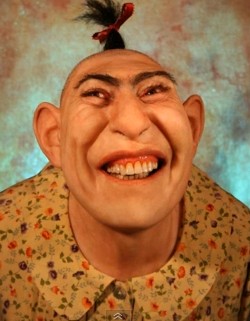
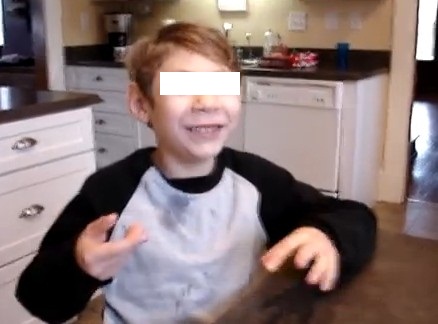
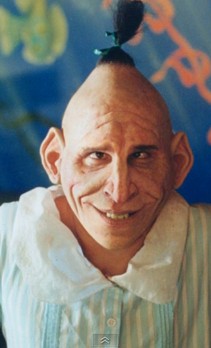
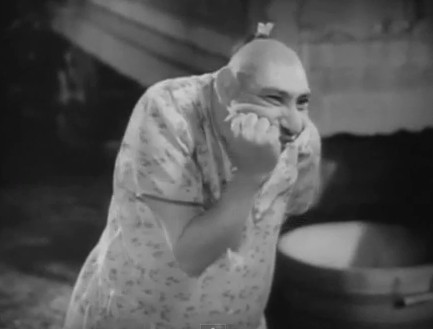
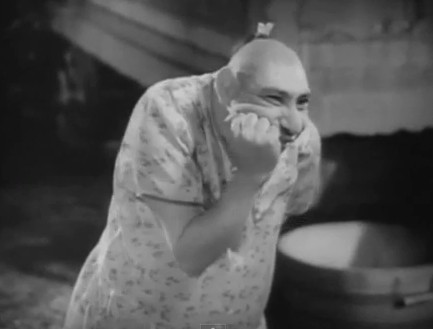


My Mother had a baby girl at 9 months gestation with head of a 4 month fetus. The baby of course was delivered dead! Would this have been microcephaly???
Didn’t the doctors do any tests to determine why the baby died? It’s possible , so sorry I can’t imagine what your mother went through ..:(
This would most likely have been anacephaly (born with only a brain stem, or a small part of the brain, not as much as microcephaly) based on the 4-month time period example you gave.
Feeling bad thinking of life expectancy of Microcephaly. Just wishing people take adequate precautions for Zika Virus. Take care
i have a baby with 1 year old and 36 cm head .he also do not hear and no surgery can help him.he eat very good and his movement is very good with physical tretment i expect him to walk within month or two maximum.he dont have convulsions.his weight about 7 kg and at birth it was 1.5 kg.i need help what can i do to improve his life and what you can say about his situation .is there any drug help him .and is it true that he may miss his eyes
I am the Mother of a son age 42 with severe microcphiy. He is the joy of my life. I was given no hope when he was born, I worked with him fought for him and he is happy and has a full life. He is like a three year old who has lived for 42 years growing in knowledge,understanding, and abilities.
Hi Dianna, I have a niece with Microcephaly. I would love to ask you some questions about your journey with your son. My email is lilak16@hotmail.com
My son was dx with microcephaly at 3, after developing epilepsy. He now has multiple problems and significant behavioral problems. Hoping for the best
I completely understand my son is 31 with microcephaly he is the highlight of my day but he sure does keep me on my feet he is going through a behavior problem now idk what wrong he can’t talk soon dk do you have any suggestions
love your baby. you created him and brought him into this world that’s full of much worse things than microcephally. you are his morning noon and night, make that amazing.
my son is 6yrs old.he was diagnosed with microcephaly at almost 2yrs old. we dont know why he has it.we have done genetic testing.all has came back normal.when diagnosed drs say he may never walk.he runs around now and walks.still has trouble with balance but is doing great.he is nonverbal.he is in school and i am starting to experience aggression with him.maybe due to inability to express emotions and demands.he will be with us well past 18.he is still in diapers.he is 6 with the functions of around a 3yr old.he is severly developmentally physically and emotionally delayed.alot of therapies and school has done him wonders.stay positive my friends. he is the happiest kid i know despite his disadvantage.
Unfortunately there is no real accurate pre-birth test, such as for downs syndrome. Check your family history on both sides, make sure that the partners are not infected with any potential virus before conceiving, and during conception try to be virus free, even avoid too many public situations where one may catch a virus. If the child is born with the condition, we as a society should all be there to help, especially our governments, more funding for help with living costs and more research needs to be done on pre-birth diagnostics. I wish everyone well and wish I could do more to help anyone. If there are any researchers out there, or any large pharmaceutical or research companies, please set up a fund to conduct more research.
Love you all Pinky.
Could a mosqito infectex with the with zika virus bite a two year old toddler and his head not grow as it was before?
Hi I’m 35 yrs old and I have microcephaly my life is very difficult to live with I have an age of a 10yr old I’m a mum of two girls my youngest has server microcephaly when social services found out that I was a mum of microcephaly and just had a child with it they said I would not be able to keep her due to the ability to look after her she is 4 yrs old now she can not speak she has epilepsy global delay I feel like that my life has been robed from me I love my girls and when she was 24hrs old the doctor said that she may night make it through the night I feel for all u mums out there that is or has Been critasised all your work u do is amazing
She brings me so much joy . When I see her
Hi I’m a farther of 4month year old. My daughter had sever birth complications leading to HIE grade 3/4. She has cysts in her brain and past few months we’ve started to observe signs of cerebral palsy and microcephaly. CT scans show that she has craniosytosis also. We are currently looking into the potentials of surgically solving her microcephly as she currently exhibits abilities in hearing, visual, taste(she hates the taste of medicine) feels the touch. But she have hypertonia which might be problematic when she is beginning to walk. I’m still 100%positive that my child will pull through as most of the HIE Grade 3/4 patients are not reactive as she is according to the literature I’ve read. My mistake in the entire picture was that I was not able to take my wife to the hospital before she began show eclampsia related general edema, which lead to seizures on the mother before the child birth causing mild plesantal abruption. I’d be really happy to have chat with a parent/guardian who went through, who could help us out on getting through the first few phases and could motivate us at least on micro levels.
My name is chevanese I am 20 years of age,I had my daughter January 25…she should start be sitting up by now because she is six months but otherwise she eats well she gooz a lot honestly I’m worried but god knows best